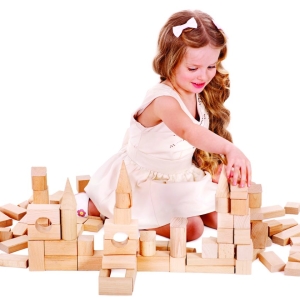Transferring a child to a new type of food, some mothers sometimes face difficulties. Baby, accustomed to get breast milk, milk mixtures and masculine products, try to swallow the pieces of solid foods and completely refuse it. Chew food does not always mean grinding her teeth. The child must acquire the skill to distinguish the solid pieces in a semi-liquid food and form a food lump in the mouth without a desire to spawned it.
Why do children refuse to chew
- Incorrect feeding. One of the reasons why modern kids refuse to chew on their own, we can consider a wide variety of finished baby food. Such karyas and mashed potatoes are very convenient for parents, as always at hand and do not require cooking efforts. When buying such products, it is recommended to pay attention to instructions for use. As a rule, all products have their own age group, and the difference in content is the consistency of the finished mixture. For very small children, the first lure has a liquid puree form. For the older children, the mixture can be more dense and contain particles of solid products.
- Laziness. Sometimes children already at an early age are spoiled and lazy - they simply do not want to chew food. In addition, in the first caprise, the careful mother will replace the incomprehensible product with his favorite mashed potature.
- Hyperactivity. Children suffering from hyperactivity often refuse to chew, because it needs to be spent some time. For such kids it is quite difficult to stop in place and focus on food.
Development of chewing skills in a child
- 6 months. Chewing reflex is formed, starting from six months. It is very important not to miss the moment when the child begins to cut the first teeth. It is during this period that the chewing instinct of the baby is formed, so instead of a rubber teether, it is better to give a child with a drying, Sukharik or children's cookies. Thus, the baby will not just scratch the gums, but learns to make the first chewing movements.
- 12 months. During this period, children have 6-8 teeth in the mouth, so they can try to chew solid food. Under the control of mom, the child must even before the one-year-old age (from 8-10 months) to get more dense food - offer the baby chopped by pieces of boiled vegetables, slices of fruit, large crackers.
- 2 years. By two years, the baby should be able to actively chew. It was during this period that the use of solid food helps the proper development of the dental system, the normal function of salivation and the formation of the activity of the digestive system. If a child is experiencing difficulties to this age, measures should be taken.
How to help your child learn how to chew
Several useful tips for parents who are experiencing about how to teach the child is solid food:
- Arrange a small performance for your baby - tell me that the Blender broke, and the store did not have a favorite puree. Offer the child to spread the fork for the fork. Of course, as a result of food, it may be far outside of the plate - we will take it completely calmly. It is important to interest the baby and draw it attention to changes. Then suggest it to try what he himself has prepared.
- Try the child with something particularly tasty - sweet fruit, marmalade, marshmallow. Invite your other children. Arrange for children a separate beautiful table. For the company with other kids, with pleasure fluttering, your child will also want to try a piece.
- Stop grind food - offer baby only products in their natural form. If the child refuses - do not worry, retain and repeat the meal in half an hour.
- Try to eat with a kid in a public place. Explain to him that he is already quite an adult and should not have only "children's" food. Changing the situation and the presence of other people can help the child.
Of course, overcome the resistant reluctance of the child will be quite difficult. The main thing is to show patience and durability. Remember that first of all you care about the health of your baby. If you are not reacting to whims and worry about the fact that the child is hungry, gradually the child will get used to the usual diet.


































